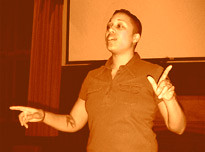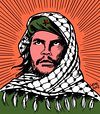There are a few other reasons for why the Noachides are so intriguing to me.
The Noachide faith seems like it could potentially provide a crude foundation for Perennialism (a subject we have talked about before). The Noachide principles (especially if they were developed more deeply) are arguably a form of the Perennial Wisdom (Sophia Perennis) which lies at the common center of all authentic religions.
In particular, the Islamic shariah also incorporates the basic Noachide commandments (including some of the more distinctive details regarding sexual immorality, making idols, and consuming blood) while obviously including many more besides the basic set of 7. So in some sense Islam is a more fleshed out way to be a "Noachide" while being more autonomous from Orthodox Judaism.
Also, it is common for Muslims to say that in some (usually metaphysical) sense, Islam is the eternal religion of all the prophets. But if the Noachide path is authentic, then one could literally say that Muslims are following the religion of Noah.
A final more provocative note... one of the more controversial issues which Muslim scholars seem to disagree on is the exact identity of the Sabians. Over the centuries, there has been a lot of speculation on which group is intended by the Quran in passages like:
Some have suggested that the Sabians were star-worshippers and not even People of the Book. Others have identified them with the gnostic Mandaeans of Iran and Iraq who believe in John the Baptist (but not Jesus). But at least one scholar has suggested that the Sabians are a religion who follow the religion of Noah and read the Psalms. (The rabbis actually suggest that Noachides used the Psalms in their devotions). So if there were prominent communities of Noachides in the early Muslim world, perhaps they really did live on the Arabian Peninsula and are referred to in the Quran.
I won't get into the details now, but to add credibility to the above, in the New Testament (especially Acts 15) and other sources, there is some indication that many Gentiles in the ancient world followed some form of Noachide observance.
Google Directory: Noahidism
The Noachide faith seems like it could potentially provide a crude foundation for Perennialism (a subject we have talked about before). The Noachide principles (especially if they were developed more deeply) are arguably a form of the Perennial Wisdom (Sophia Perennis) which lies at the common center of all authentic religions.
In particular, the Islamic shariah also incorporates the basic Noachide commandments (including some of the more distinctive details regarding sexual immorality, making idols, and consuming blood) while obviously including many more besides the basic set of 7. So in some sense Islam is a more fleshed out way to be a "Noachide" while being more autonomous from Orthodox Judaism.
Also, it is common for Muslims to say that in some (usually metaphysical) sense, Islam is the eternal religion of all the prophets. But if the Noachide path is authentic, then one could literally say that Muslims are following the religion of Noah.
A final more provocative note... one of the more controversial issues which Muslim scholars seem to disagree on is the exact identity of the Sabians. Over the centuries, there has been a lot of speculation on which group is intended by the Quran in passages like:
Surely those who believe, and those who are Jews, and the Christians, and the Sabians, whoever believes in Allah and the Last day and does good, they shall have their reward from their Lord, and there is no fear for them, nor shall they grieve. (2:62)
Some have suggested that the Sabians were star-worshippers and not even People of the Book. Others have identified them with the gnostic Mandaeans of Iran and Iraq who believe in John the Baptist (but not Jesus). But at least one scholar has suggested that the Sabians are a religion who follow the religion of Noah and read the Psalms. (The rabbis actually suggest that Noachides used the Psalms in their devotions). So if there were prominent communities of Noachides in the early Muslim world, perhaps they really did live on the Arabian Peninsula and are referred to in the Quran.
I won't get into the details now, but to add credibility to the above, in the New Testament (especially Acts 15) and other sources, there is some indication that many Gentiles in the ancient world followed some form of Noachide observance.
Google Directory: Noahidism


